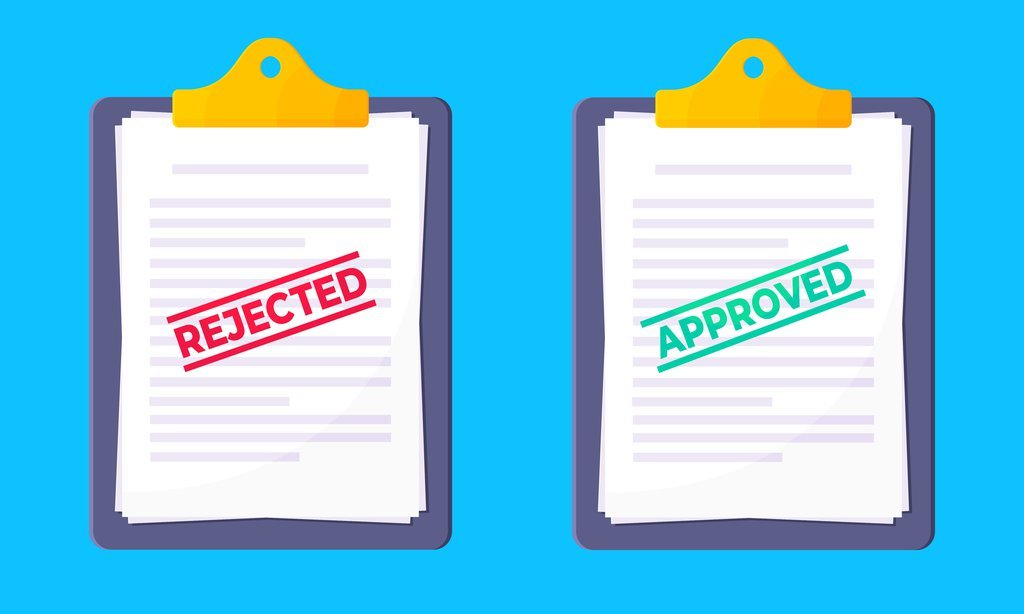For many Canadians, purchasing a home is the biggest and most impactful decision they will have to make in their lifetime. While trying to find the perfect home can be challenging, there are steps you can take to ease some of the pressures. Getting pre-approved for a mortgage can be a very beneficial first step in your home search. A pre-approval gives you an understanding of the types of homes you can comfortably afford so you can narrow down your house search and find your dream home more efficiently.
While getting a mortgage pre-approval can help you feel prepared for your property purchase, it can easily become a false sense of security as your closing date approaches. It is important to remember that it does not guarantee you will actually be approved for the quoted mortgage financing. Typically, you can get pre-approved 90 days to 120 days prior to the closing date on you home purchase. If nothing has significantly changed with your income or your financial standing in that time, you should have no problem having the mortgage funded in time for your closing. However, if you have undergone an unexpected job loss, a sudden debt accruement, or any other major life change, then your mortgage financing may be jeopardized and canceled by the bank at the very last minute.
In order to help you stay prepared and ensure your pre-approval doesn’t fall through, Maxium has compiled a list of the 5 biggest reasons why a mortgage is denied after pre-approval. Otherwise you might be looking for an emergency mortgage loan at the very last minute.
Changes in Employment
Mortgages can commonly be denied because of an employment change. Although it entirely depends on the type of loan you are getting pre-approved for, most lenders will not be able to guarantee that you will receive your mortgage financing if you switch jobs. Many mortgages actually require the borrower to have at least two years of consistent income and a stable employment history in order to qualify.
While most job changes are frowned upon during your home purchase process, there are some exceptions to the rule. If you are switching employers but keeping the same career and similar or greater income level, you might not be endangering your mortgage pre-approval. For example, if you are working in software development and decide to transition to a different company for a higher pay, your mortgage approval will likely not be impacted.
If you do have the option to hold off on your career transition, it is always safest to wait until you have signed both your ownership agreement and mortgage contract before making any changes. However, regardless of the career change or job transition you are considering, you should always talk to your mortgage broker first. A mortgage broker will be able to give you the most sound advice on whether it is in your best interest to get a new job once your mortgage funding has been released.
Negative Impacts to Credit Score
While your credit doesn’t need to be perfect to qualify for a mortgage, big changes to your credit score can jeopardize your mortgage pre-approval. Every lender has a varying criteria for the credit scores they want to see in their borrowers. If your credit score drops suddenly, the lender that pre-approved you might not be willing to sign off on a mortgage and your deal could fall through. Thus, it is very important that each borrower knows their credit score following their pre-approval and understands how credit can be negatively impacted in a short time.
Even if you can still get approved for a mortgage with your new lower credit score, you might have to settle for a higher mortgage rate, which is less than ideal. In order to avoid any potential disappointments, it is best to continue to make your debt payments on time and not do anything that can drastically affect your credit in the 4 months leading up to your mortgage finalization. If you are worried about your credit, read this article containing tips on how to improve your credit score.
New and Unexpected Debt
Another common reason for lenders to deny a mortgage following a pre-approval is because the borrower has procured a higher level of debt. In the time before you finalize your mortgage and home purchase, you should refrain from taking on any more debt than you currently have. Even a small increase in debt or a new line of credit could put your mortgage pre-approval in danger. An increase to your debt, no matter how insignificant, can alter your debt-to-income ratio and result in your mortgage being denied.
Before you rack up your credit card or take out a new loan, it is recommended that you speak to your mortgage broker about the decision. A good mortgage broker will almost always advise you to wait until your paperwork is signed before you make any sudden financial movements.
Lender Guideline Changes or New Requirements
It is important to remember that even when a borrower has already been pre-approved by their lender, they are not exempt from any new guidelines or requirements that the government or individual lenders implement. If a lender changes their minimum credit requirement from 600 to 620, borrowers with a lower credit score will lose their mortgage pre-approval. Although this may sound frustrating, a good mortgage broker will likely be able to get you approved with another lender whose restrictions are slightly different.
Other changes to lender requirements or qualification guidelines that could cause your mortgage to be denied after pre-approval are debt to income guideline changes and variations to the amount of savings expected of a buyer.
The Appraisal Comes in Too Low
If you are purchasing a home straight from the builder, than in most cases you won’t need to have the home appraised, and the banks will provide you with a mortgage loan based on the purchase price that you are paying for it. If you are buying a pre-existing or pre-lived in home, then almost always the mortgage lender will require an appraisal that is conducted by an accredited appraiser of the lender’s choice.
A good mortgage broker will help ensure that the appraisal for your home is ordered on time and from the right appraisal company in order to help you maximize your chances of having a smooth and easy time with your mortgage financing.
Unforeseen external situations like this demonstrate why borrowers should always work with a mortgage broker and industry expert who can help them navigate such unexpected circumstances.
Tips To Ensure Your Mortgage Doesn’t Get Denied After it Already Gets Approved or Pre-Approved
A common question that is asked by borrowers is how they can ensure their mortgage doesn’t get denied following their pre-approval. It may seem silly, but the best answer is to keep doing exactly what you were doing before you pre-approval. Since you already got approved for a mortgage, all you need to do is stay in the same financial standing as you did before your pre-approval. A mortgage pre-approval typically lasts for 120 days so your job as a borrower is to keep your finances steady until you purchase your home. Mortgage lenders and mortgage brokers will do everything in their power to see as many of their pre-approvals make it to closing, so you don’t have to work too hard.
Here are some additional tips for borrowers that want to make sure their mortgage will not get denied last minute:
Don’t make large deposits into your bank accounts within the last 90 to 120 days before your mortgage is due to close and fund without having proof as to where the money came from
Don’t withdraw large amounts of money from your bank accounts within that same period of time
Don’t take on other lines of credit, new credit cards, new car loans, or any other kinds of loans
Don’t accrue more debts by carrying a higher balance on your existing credit cards
Keep some money aside in the event that your closing expenses are more than originally estimated
Provide all requested documentation to the lender as quickly as possible early on in the mortgage application process. You can find a list of common documents that you may need to provide to your broker or lender in our Mortgage Document Checklist blog.
A mortgage denial is one of the biggest reasons real estate deals fall through and why so many borrowers turn to Maxium Dsouza for help with a quick closing last-minute mortgage. It can also be incredibly frustrating for an already approved borrower to have their mortgage stripped from them at the very last minute, because in can mean that they can lose the property and deposit.
Even if you have just been pre-approved from your bank and haven’t yet started looking for a house or a mortgage, working with a mortgage broker is in your best interest. Maxium will make sure you are aware of how a mortgage can be denied and that you are well prepared and setup for a successful mortgage transaction, so that you never have to worry about losing out on your dream home!
Maxium is a experienced and knowledgeable mortgage broker and will help you stay informed on the best way to avoid potential situations that could lead to a mortgage denial. He will be able to give you specialized advice on how to deal with the unforeseen circumstances that could jeopardize your future home.
Call or text Maxium today at 437-353-9977 or email us at







